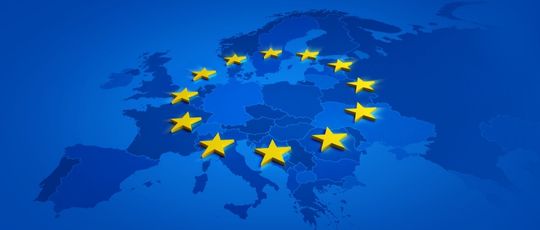The past two years have been a period of impressive growth for Young King Hair Care.
The Atlanta-based company, which sells hair-care products for adolescent Black and brown boys,
began as a direct-to-consumer outfit, selling exclusively online.
But in December 2019, co-founders Cora and Stefan L. Miller were taking part in a pop-up marketplace of Black-owned businesses
in Atlanta when a Target Corp. representative approached them with a question:
Would they be interested in participating in their Accelerators program, which was designed in part
to help Black business owners bring their product to store shelves?
THEY SIGNED ON.
A year and a half and one major reckoning with race in America later, Young King has deals with both Target and Walmart, putting its products on shelves of more than 1,200 stores. CMO Stefan L. Miller, who held senior leadership positions at General Mills and Coca-Cola before starting Young King, says the company’s success is evidence of increased awareness of Black-owned business, after years of being dismissed by institutions who could provide loans or other support.
“We’d been told, ‘You’re too small’ or ‘You’re only working for Black and brown boys; that feels like a small segment,’” he said. “They were not realizing the pain the consumer feels by not having anything that’s intentionally crafted for them. They were not understanding the buying power of our community and the needs of our community.”
Not anymore, perhaps. In the wake of protests in 2020 following the murder of George Floyd in Minneapolis, numerous companies have stepped up their engagement with Black- owned businesses.
In April, Target Corp., which is based in Minneapolis, pledged to invest $2 billion on those businesses through 2025, with a goal of bringing 500 brands into its stores. Facebook committed $40 million in grants to Black-owned small businesses. The Fifteen Percent Pledge, a nonprofit that encourages retailers to dedicate that percentage to Black- owned businesses, has attracted signatories like Macy’s, Gap Inc. and Crate & Barrel.
How transformative — and sustainable — such efforts will be is an open question. “It’s a start, but we still have to drive accountability,” Miller said.
For the moment, though, companies are seeing that this particular part of corporate social responsibility makes sense in terms of doing good. They’re getting more encouragement — and pressure — from consumers to do it. And that, in turn, is changing how companies are thinking about their businesses and the stories they tell about it.
Permission to Change
Why the change? The prominent protests of 2020 are one major explanation. But Target, for instance, had launched an early version of its Accelerators program in 2017. One reason is simply that the American consumer wants that change, and expects corporations to be leaders on social issues more so than in the past.
For instance, a Forrester Research survey from March 2021 found that consumers believe companies should “lead the change” on hot-button issues like climate change, the minimum wage, health-care reform and systemic racism.
Moreover, that belief is very strong among members of Generation Z, who are much more demanding than the country overall on those issues and on marriage equality, police reform and white supremacy.
That rising tide of political engagement has given companies more confidence to act. “More and more CMOs feel that it’s appropriate for brands to take a stand on politically charged issues,” said Mike Proulx, vice president and research director at Forrester.
And companies have learned their lessons from efforts that only appeared to pay lip service to social-justice issues, like a 2017 Pepsi commercial starring Kendall Jenner that was widely criticized for trivializing the imagery and intent of the Black Lives Matter movement.
“Brands’ well-intentioned social media posts are kind of like vacuous ‘thoughts and prayers’ statements,” says Proulx. “More and more consumers, especially Gen Z, see brands as influencers, and they have an expectation that brands will use their platform of influence to actually create real change.”
That expectation of corporate direct engagement has only increased in 2021, as companies spoke out about the Jan. 6 insurrection at the U.S. Capitol and the state of Georgia’s enactment of voter suppression laws. So those announcements of corporate investment in Black-owned business are serving a consumer base that increasingly demands it.
But we’ve yet to see if these investments have improved the overall fortunes of those businesses or more broadly impacted the American retail economy. According to the Stanford Institute for Economic Policy Research, more than 40% of Black-owned businesses closed in the early months of the pandemic, and other studies have found that those businesses are overall in a more precarious position than other ethnic groups. A handful of commitments by a number of retailers, whatever their position on the Fortune 500, won’t in themselves transform the environment.
A Capital Challenge
That’s why Marc Morial, president of the National Urban League, is encouraged but skeptical about announcements from Target and the like. “It’s too early to tell,” he says. “Until the economy is reopened for 24 to 36 months, it’s going to be difficult for anyone to say that these initiatives have borne fruit.”
Morial is withholding judgment in part because the key economic driver for improving Black-owned businesses isn’t retail so much as banks. The NUL’s own research and other surveys have shown that those businesses have more difficulty accessing loans and seed funding, and generally start with less startup funds. According to a 2017 Stanford Institute for Economic Policy Research report, Black entrepreneurs launch with approximately $35,000 in capital, on average; white entrepreneurs start with just over $100,000.
“At the end of the day, the biggest barriers facing Black- owned businesses are contracts, capital, and connections,” Morial says. That breadth of needs is why NUL has a host of programs, focused on small businesses, restaurants and general entrepreneurship. “We have a number of initiatives, and the point is that none of them are large enough standing alone.”
Stefan Miller speaks enthusiastically about Target’s program: “There are so many steps involved in making sure you’re ready for retail — your supply chain, your marketing, how you communicate, your marketing, your packaging — and they give you a lot of retail fundamentals to understand how to make that decision,” he said. “The program is not intended to push you just to Target, or even to say that you need to go into stores. It’s giving you the tools to ask, ‘Is expanding to retail the right thing?’”
But Miller recognizes that there’s still work to do. Target’s engagement so far with Black-owned businesses has tended to emphasize beauty and grooming companies like Young King. “But just because you are a Black founder doesn’t mean your products are only for Black people,” he said. “I’m excited about the innovation. A lot of founders have started in the beauty space because that’s been one of the biggest gaps, but there are other spaces — apparel, food, toys, so many places in stores where new ideas can come up.”
“Political change takes time, but boycotts give people a sense that they’re making an impact immediately. It gives people a sense of control, and a sense that they’re expressing their values. That’s not specific to last year. So, I don’t think that this is a trend that’s going to go away.”
Next Steps
Morial predicts that a more transformative environment will require long-term commitments from retailers and changes in the financial arena.
“I think the important thing for Target and others who make commitments is to live up to them. Come back to the community in a year or two and tell us exactly how and with whom you’ve increased your spending,” he said. “And financial service firms, banks and others can do a lot more to provide more capital — not just loans but equity capital — to small business owners to assist them in their growth.”
To that latter point, a recent McKinsey and Co. report on disparities in investment in Black-owned business suggests that a modest yet substantive change can level the playing field. “An additional $7.6 billion to $15.4 billion in liquidity for Black-owned [small businesses] in the 2020-21 timeframe — less than 3 percent of the $659 billion authorized under the Paycheck Protection Program — could preserve 460,000 to 815,000 jobs,” according to the report.
The ability of grassroots action to prompt that kind of transformation shouldn’t be overlooked. According to a recent Savings.com report, for example, consumers want apologies when companies misstep. But they also want action. Half of survey respondents said they expect donations to the group affected by the misstep, as well as philanthropic commitments to those communities.
Savings.com found that people are much more ready to call out and boycott brands that are seen to fall short in consumers’ eyes politically. And though the intensity of the boycott efforts was partly a function of a politically fraught 2020, Savings.com Director of Retail Trends Sara Korab says that companies will have to consider their engagement on political and social-jus- tice issues for the foreseeable future.
“Young shoppers, Gen Z and Millennials, are so passionate,” she said. “Political change takes time, but boycotts give people a sense that they’re making an impact immediately. It gives people a sense of control, and a sense that they’re expressing their values. That’s not specific to last year. So, I don’t think that this is a trend that’s going to go away.”







